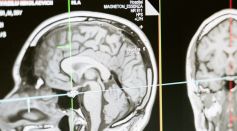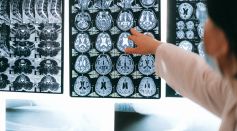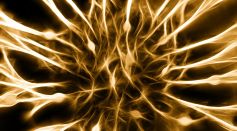Tags: Brain

Brain Disorder vs Stigma: Psychiatric Disorders Wrongly Deduced as Innate and Long-Lasting, Research Says

Part of Brain That Controls Habits Found Responsible for Encoding New Learnings, Neuroscience Research Reveals
Cuttlefish: Extraordinary Sharp Memory of Sepia officinalis Breaks Aging Limitations

Protein Droplets Viscosity and Surface Tension Leads to New Neurodegenerative Disease Indicators, Targets Solution to Alzheimer's, Parkinson's, ALS

Neuroproteomes: New Method of Labeling Proteins in the Brain, May Benefit Therapy for Parkinson’s, Alzheimer’s Disease
Dementia Can Now Be Diagnosed in Just One Brain Scan, Detection of Early Signs of Mental Ability Decline Possible

How Do Brain Cells Form? Scientists Introduce Molecular Atlas that Mapped Fetal Development of Brain

Coffee and Brain: Can Too Much Coffee Consumption Lead to Dementia and Stroke?

Dopamine Impulses Can Be Controlled in the Brain of Mice in Anticipation of Rewards

Brain-Computer Interface: Bioengineers Warn About Consequences of 'Bleak Cyborg Future'

Man Whose Voice Was Silenced for Years Can Communicate Now, Thanks to His Brain's Electrical Impulses
'Grandmother Neuron' May Exist After All: Scientists Found Cells that Links Face Perception and Memory

Neural Activity of Bats' Hippocampus Reveals An Important Mammalian Built-In Navigation System

NCyborg Program: Can AI Robots Assist in Stroke Rehabilitation? Neuroscientists Develop Brain-Computer Interface to Find Out
First-of-its-Kind Brain Signal Detected Hinting at More Powerful Brain Capabilities
Blood Cell Proteins That Deliver Oxygen Related to Cognitive Decline and Brain Aging

Super-Resolution Brain Scanning Producing Images Better Than Traditional PET

Brain Activation Underlying Adolescent Development Might Explain Risk Factors for Mental Health Disorders in Adulthood

Recent Neurological Study Suggests Short Breaks Replay Memories, Help People Learn New Skills

Adolescents Who Stopped Studying Math After 16 Are at Greater Disadvantage in Cognitive Development
Most Popular

Can the World Run Out of Water? Water Scarcity Science and Climate Impact Explained

Solar Maximum 2026: Inside the Sunspot Cycle and Solar Activity Forecast Astronomers Are Watching

Volcanic Warning Signs: How Magma Movement Reveals Eruption Prediction Clues for Geologists

Could Technology Prevent Natural Disasters? How Disaster Prediction and Early Warning Systems Could Save Lives





